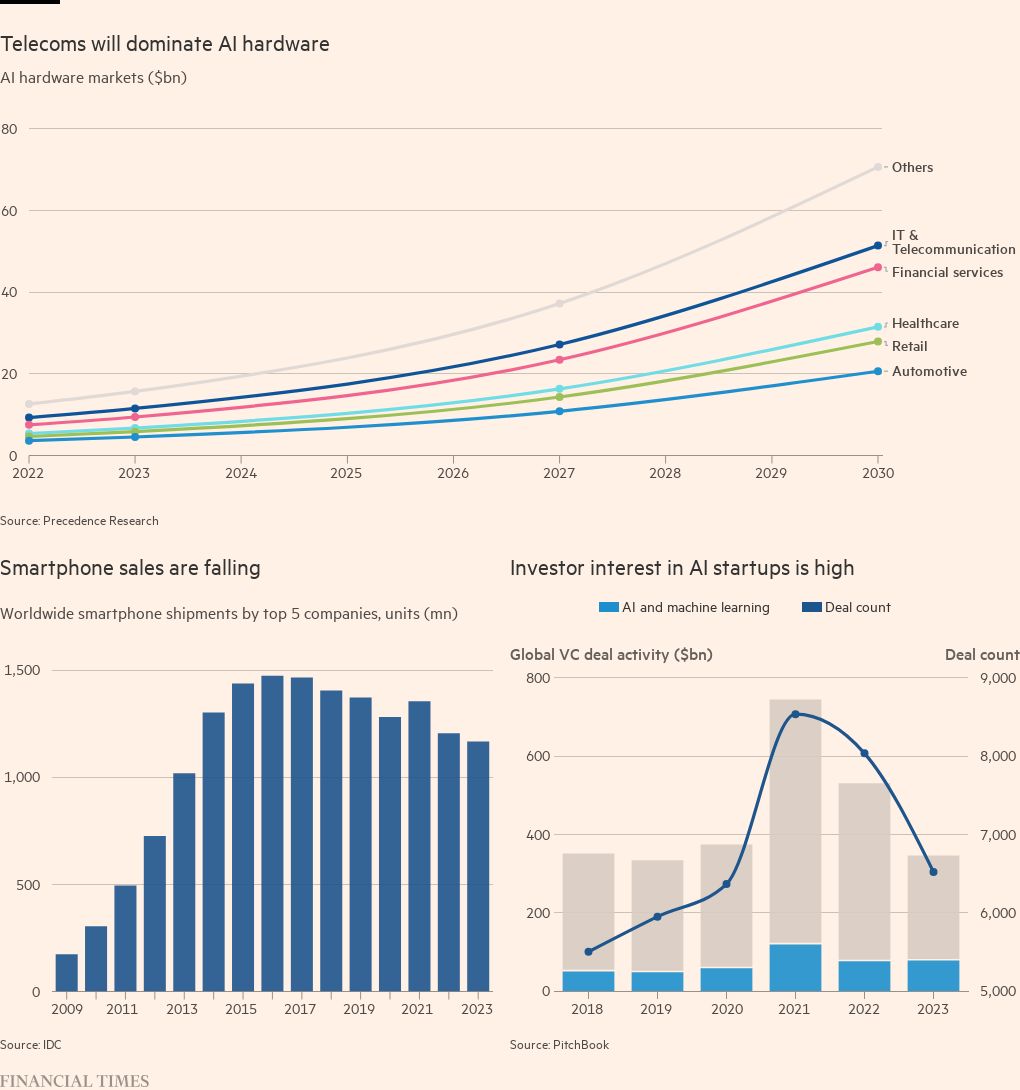Unlock the Editor’s Digest for free
Roula Khalaf, Editor of the FT, selects her favourite stories in this weekly newsletter.
AI-washing has reached consumer tech. Dozens of internet-connected devices are now described as powered by artificial intelligence. But amid the AI grills and mattress toppers, the gadget attracting most attention is a smartphone replacement that looks like a Playmobil toy.
The R1 is an AI “pocket companion” that costs $199 and claims to have sold more than 40,000 units on pre-order in the past week. Creator Rabbit, which has raised $30mn from investors, describes it as a new generation of device compared with the humble phone. It claims its “large action model” has been trained on existing interfaces, like apps, and that the voice-activated device can carry out tasks — booking a train ticket say — on a user’s behalf.
Smartphones have been slow to integrate generative AI features. Paucity of upgrade ideas contributed to a decline in unit sales last year. Shipments from the five largest companies fell 3 per cent in 2023, according to data from IDC. At 1.17bn, the total is at a decade low. If AI gadgets could take just 0.1 per cent of global smartphone sales, the market could be worth half a billion dollars. But smartphone makers have no intention of allowing that to happen.
Startups spot an opening. AI is already the most popular area of investment for venture capital. PitchBook tracked VC deals worth nearly $80bn in AI and machine learning last year. While the total has fallen since 2021, it accounted for 23 per cent of deals — the largest of any sector.
San Francisco start-up Humane, created by former Apple employees, has already raised over $100mn for its AI lapel pin. It has an Apple-like price point, charging $699 plus a $24 a month subscription that accesses T-Mobile’s network. Investors include OpenAI. The pin can apparently be used to make calls, listen to music and answer queries. However the start-up laid off workers this month, suggesting pre-order numbers may be poor.
The weakness of both products is their proximity to existing devices. Voice activation already exists. Making calls and listening to music is already possible.
Consultancy Precedence Research expects telecoms to be the largest market for AI hardware. Smartphone companies will not hand this market to newcomers. They could eliminate demand for Humane and Rabbit products by incorporating AI features into new handsets before the start-ups have time to ship their products.
On Wednesday, Samsung announced AI-enabled features for new phones, including live call translation. Apple is expected to announce AI model integration soon. In AI hardware, old technology adaptation will trump early-mover hype.
Lex is the FT’s flagship daily investment column. If you are a subscriber and would like to receive alerts when Lex articles are published, just click the button “Add to myFT”, which appears at the top of this page above the headline

